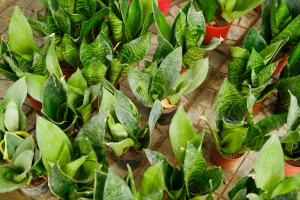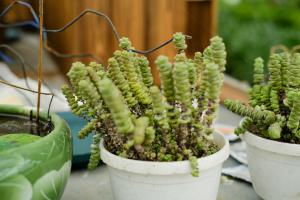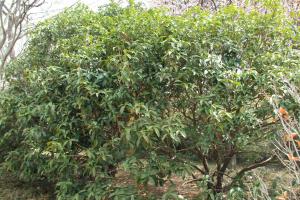Don't Plant Ficus Trees Close to Your House
When it comes to landscaping design, homeowners often think of planting trees for their aesthetic appeal and for the purpose of providing shade. However, some types of trees may end up causing more harm than good, especially when planted too close to your house. One such tree is the ficus tree. In this article, we'll explain why you should avoid planting ficus trees near your home.
Why Ficus Trees Should Not be Planted Near Houses
Ficus trees are popular among homeowners for their lush green foliage and their ability to grow quickly. However, ficus trees have a powerful root system that can cause damage to your home's foundation, walls, and pipes. The roots of ficus trees can grow up to several feet deep and several feet wide, and they are known to be invasive. When planted too close to your house, the roots of ficus trees can damage the structural integrity of your home, which can lead to costly repairs or even collapse.
The Risks of Planting Ficus Trees Near Your Home
In addition to damaging the structural integrity of your home, planting ficus trees too close to your house can also pose other risks. For instance, ficus trees are known to attract pests like termites, ants, and other insects that can cause damage to your home. Moreover, ficus trees can shed their leaves and branches, which can pose a threat to your roof, windows, and other parts of your home.
How to Deal with Ficus Tree Roots Near Your Home
If you already have a ficus tree growing near your home, there are several steps you can take to prevent it from causing damage to your property. One of the best ways to deal with ficus tree roots is to install a root barrier around your home. A root barrier is a physical barrier that is installed underground to prevent tree roots from growing towards your home. Another solution is to cut the roots of the ficus tree regularly to prevent them from growing too close to your home.
Alternatives to Ficus Trees for Landscaping
If you're looking for alternatives to ficus trees for your landscaping design, there are several options to choose from. Some of the best trees for providing shade and aesthetic appeal without causing damage to your home include beech trees, birch trees, and maple trees. These trees have shallow root systems that are less likely to cause damage to your home's foundation, walls, or pipes. Moreover, they are less susceptible to pests and diseases that can harm your home.
Conclusion
In conclusion, planting ficus trees too close to your home can be a costly and dangerous mistake. These trees have invasive roots that can damage the structural integrity of your home, attract pests, and shed leaves and branches that can harm your property. If you already have ficus trees growing near your home, it's important to take measures to prevent them from causing damage. Alternatively, consider planting other trees that are safer and more suitable for your landscaping design.

 how many times do yo...
how many times do yo... how many planted tre...
how many planted tre... how many pine trees ...
how many pine trees ... how many pecan trees...
how many pecan trees... how many plants comp...
how many plants comp... how many plants can ...
how many plants can ... how many plants and ...
how many plants and ... how many pepper plan...
how many pepper plan...































